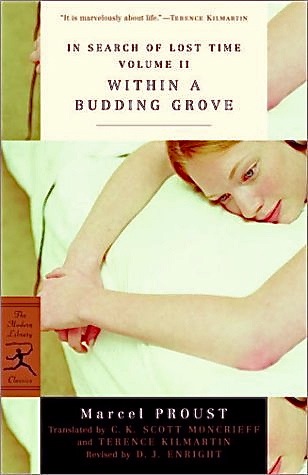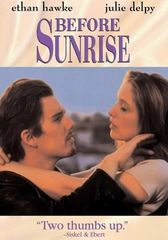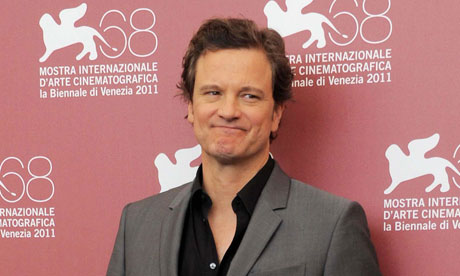Love in all its forms: steadfast, unrequited, hidden, or blind… These classic novels aren’t just about romance, but deal with their subject matters in the context of their social milieu, gender relations, class disparity, individual aspirations and angsts, as the authors explore that elusive entity called love.
What better time than now to watch these movie adaptations again, or for the first time, since many of us can’t go anywhere under pandemic restrictions. So, here they are, the Ripple list of stay-at-home viewing for Valentine’s 2021. Links are to my Ripple reviews.

1902-1911. Photo taken by Arti, Oct. 2015.
***
The Age of Innocence by Edith Wharton – With this novel, Wharton became the first woman to win the Pulitzer in 1921, which makes this year the 100th anniversary of her Prize honour. Wharton’s depiction of the Gilded Age and Newland Archer’s inner torments are aptly captured by Martin Scorsese (1993), and of course, Daniel Day-Lewis and Michelle Pfeiffer.
A Room with A View by E. M. Forster – Merchant Ivory’s 1985 production remains the definitive classic. Lucy opening the window of her (exchanged) room in the Pensione Bertolini to see the view of Florence, enwrapped by the voice of Kiri Te Kanawa singing “O mio babbino caro”. And what a cast: Helena Bonham Carter, Maggie Smith, Judi Dench, Daniel Day-Lewis.
Anna Karenina by Leo Tolstoy – Here’s a story of an unhappy family; true enough, epic in its unhappiness, as the ending shows. The Joe Wright directed, Tom Stoppard scripted adaptation (2012) is worth a look for its highly stylized rendition. How many other versions? At least three dozen.
Breakfast at Tiffany’s by Truman Capote – George Peppard and Audrey Hepburn make ideal screen lovers, but life isn’t ideal. Holly Golightly singing “Moon River” by the fire escape of her NY apartment is heart-tugging. Yes, that’s her own voice. But major flaw I try to ignore is Mickey Rooney’s Mr. Yunioshi. Have to forgive and forget that dated, racially stereotyped portrayal.
Emma by Jane Austen – It has been 24 years since the last full-length feature of Emma was made for the big screen, time for a millennial version (2020). Rising star Anya Taylor-Joy got two 2021 Golden Globe Best Actress nominations for her roles in Emma and The Queen’s Gambit. The multi-talented Johnny Flynn (The Dig) is the updated Mr. Knightly.
The End of the Affair by Graham Greene – The 1999 movie came out three years after The English Patient, another one of Ralph Fiennes’s dead-end passion for someone he can’t have. Graham Greene’s classic is Colin Firth’s choice to record for UK Audible, a series by famous actors reading their favourite classic novel. What more can you ask?
Far from the Madding Crowd by Thomas Hardy – As much as I enjoy Carey Mulligan’s works, for this one, I think the director and screenwriter had mishandled the adaptation, albeit I must say I love the lush green Dorset landscape. For nostalgic reasons, maybe it’s time to revisit John Schlesinger directing Julie Christie as Bathsheba Everdene (1967), with Alan Bates and Peter Finch.
Goodbye Mr. Chips by James Hilton – May not be on the list of early 20th C. classics, but the 1969 film is a gem. Peter O’Toole won a Best Actor Golden Globe for his role as poor old Mr. Chips, and Petula Clark is a natural. The scene where she sings out ‘Fill the World with Love’ at the school assembly is hilariously inspirational.
The Great Gatsby by F. Scott Fitzgerald – I like Robert Redford as Gatsby (1974), but Carey Mulligan as Daisy (2013), so, it’s a toss-up between the two versions. Also, I think Gatsby is great not because of his extravagance and opulence, on which Baz Luhrmann’s 2013 version focuses. He’s great because of his steadfast, and you could say, blind, love for Daisy. The only reason he strives to climb to the top is to win her back. The 1974 version is more subtle, screenplay written by Francis Ford Coppola.
Howards End by E. M. Forster – The 1992 Merchant Ivory production is classic, the more recent adaptation derivative of it. James Ivory directing, screenplay by Ruth Prawer Jhabvala (Best adapted writing Oscar), cast Vanessa Redgrave, Emma Thompson (Best Actress Oscar), Anthony Hopkins, Helena Bonham Carter. Book and film worth revisiting time and again.
Jane Eyre by Charlotte Brontë – With over twenty adaptations for the big and small screens, which one do you choose? I appreciate the newest 2011 full-length feature directed by Cary Fukunaga. The storytelling is fresh and cinematography stylish, screenplay by Moira Buffini who 10 years later scripted The Dig. As for the actors, I can’t say whole-heartedly that the Fassbender and Wasikowska duo are as good as Ciaran Hinds and Samantha Morton though.
Little Women by Louisa May Alcott – Greta Gerwig’s 2019 adaptation of Little Women is a joyous celebration of family and life, and paints for us what love is all about. One of the best films I’ve watched in recent years and an updated version for today. This would make a fine 2021 Valentine’s stay-at-home viewing.
Out of Africa by Isak Dinesen – Best to be an armchair traveller during a pandemic, and let the movie transport you to a freer landscape. As for this one, lament a love unrequited. Being in Africa, Karen (Meryl Streep) should have known that she can’t chain a lion to one spot. Denys (Robert Redford) has to roam the mountains on his own. While Mozart might be able to subdue him momentarily, the wildness inside him can’t be tamed.
Parade’s End by Ford Madox Ford – Ford’s tetralogy was adapted into a 5-episode BBC mini-series (2013), which didn’t get much attention this side of the Atlantic. The love between Christopher Tietjens (Benedict Cumberbatch) and Valentine (Adelaide Clemens) is latent and restrained, and does not surface in more realistic way until the last episodes. Why, there are more important issues to deal with such as a World War, women suffrage, and Sylvia Tietjens (Rebecca Hall).
Pride and Prejudice by Jane Austen – Here’s a dreamy scenario: time rolls back 25 years for Colin Firth to do a remake. This time, let’s have Carey Mulligan to play Elizabeth Bennet, ok, roll back 10 years for her, and never mind that she was Kitty in 2005. Failing these, I’ll settle for the 1995 BBC series again. But thanks to our dear Jane, we can always revisit her characters in our literary dreamscape,
Sense and Sensibility by Jane Austen – I’m sure Emma Thompson would want to roll back 25 years too, when in 1996 she won an Oscar and a Golden Globe for her adapted screenplay of this first novel by Jane Austen. She’d no doubt want to bask in the limelight again, for that night she gave her Golden Globe acceptance speech that Jane herself would have applauded.
***
A shout-out to The Classic Club, an admirable endeavour.



















